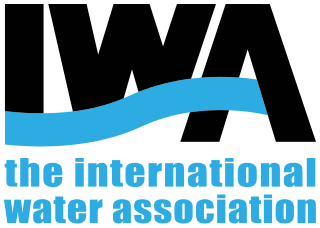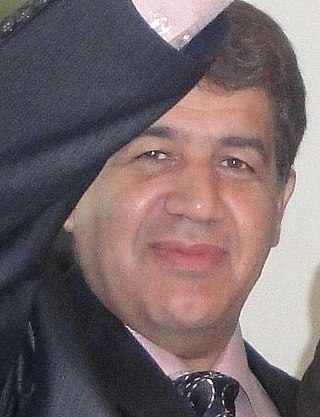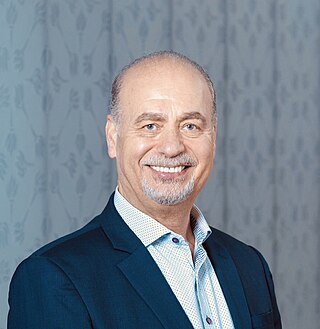Related Research Articles
Environmental engineering is a professional engineering discipline related to environmental science. It encompasses broad scientific topics like chemistry, biology, ecology, geology, hydraulics, hydrology, microbiology, and mathematics to create solutions that will protect and also improve the health of living organisms and improve the quality of the environment. Environmental engineering is a sub-discipline of civil engineering and chemical engineering. While on the part of civil engineering, the Environmental Engineering is focused mainly on Sanitary Engineering.

The Institution of Civil Engineers (ICE) is an independent professional association for civil engineers and a charitable body in the United Kingdom. Based in London, ICE has over 92,000 members, of whom three-quarters are located in the UK, while the rest are located in more than 150 other countries. The ICE aims to support the civil engineering profession by offering professional qualification, promoting education, maintaining professional ethics, and liaising with industry, academia and government. Under its commercial arm, it delivers training, recruitment, publishing and contract services. As a professional body, ICE aims to support and promote professional learning, managing professional ethics and safeguarding the status of engineers, and representing the interests of the profession in dealings with government, etc. It sets standards for membership of the body; works with industry and academia to progress engineering standards and advises on education and training curricula.
The Journal of Environmental Engineering is a monthly engineering journal published by the American Society of Civil Engineers.

The International Water Association (IWA) is a self-governing nonprofit organization and knowledge hub for the water sector, connecting water professionals and companies to find solutions to the world's water challenges. It has permanent staff housed in its headquarters and global secretariat in central London, the United Kingdom, to support the activities, and has a regional office in Chennai, India. The aim of the IWA is to function as an international network for water experts and promote standards and optimal approaches in sustainable water management. Its membership is a global mosaic comprising 313 technology companies, water and wastewater utilities, 54 universities, and wider stakeholders in the fields of water services, infrastructure engineering and consulting as well as 7,791 individuals including scientists and researchers, with 53 governing members (2021). IWA is an affiliated member of the International Science Council (ISC). IWA features regional associations, approximately 50 specialist groups covering key topics in urban water management, specialized task forces, and web-based knowledge networks.
David Gwilym Morris Roberts was a British civil engineer, cited as "one of the most influential civil engineers of the 20th century". Born in North Wales, he grew up in Merseyside before attending Cambridge University. Following graduation, he served with the Royal Naval Volunteer Reserve, including several cruises on board HMS Sheffield. After demobilisation he served part-time with the naval reserves reaching the rank of lieutenant commander. In civilian life Roberts was employed by water engineering consultant John Taylor & Sons and remained with them and their successor bodies for the rest of his career. He became founder chairman of the successor Acer Consultants in 1987, holding the post for five years, during which the group's turnover quadrupled and employee numbers trebled.
Esi Awuah is a Ghanaian academic and former vice chancellor of the University of Energy and Natural Resources in Sunyani, Ghana.

Saeid Eslamian is a full professor of Resilient Climate and Water Systems at Isfahan University of Technology in the Department of Water Science and Engineering. His research focuses mainly on statistical and environmental hydrology and climate change. In particular, he is working on forecasting natural hazards including flood, drought, storm, wind, pollution toward a sustainable environment. He is now the Director of Excellence in risk management and natural hazards. Formerly, he was a visiting professor at Princeton University, United States, university of ETH Zurich, Switzerland and McGill University, Montreal, Quebec, Canada. He has contributed to more than 600 publications in journals, books, or as technical reports. He is the founder and chief editor of International Journal of Hydrology Science and Technology. Currently, he has been the author of about 210 books and book chapters. Eslamian is the editorial board member and reviewer of about 100 Web of Science (ISI) Journals. Saeid is the editor of Journal of Hydrology (Elsevier)Journal of Hydrology, Ecohydrology and Hydrobiology (Elsevier), Journal of the Saudi Society of Agricultural Sciences (Elsevier), Journal of Water Reuse and Desalination (IWA).
Professor Jean Venables CBE, BSc (Eng), MSc, DSc, FREng, CEng, CEnv, FICE, FCGI, MCIWEM is a British civil engineer who in November 2008 became the 144th President of the Institution of Civil Engineers, the first woman to be elected to the position.
Professor Paul William Jowitt is a British civil engineer, Professor of Civil Engineering Systems at Heriot Watt University, and executive director of the Scottish Institute of Sustainable Technology. On 3 November 2009, he became the 145th President of the Institution of Civil Engineers. He was made a Commander of the Order of the British Empire (CBE) in the 2011 Birthday Honours for services to technology. He is currently President of the Commonwealth Engineers Council. He was elected in 2012 as a Fellow of the Royal Academy of Engineering.

Nidal Hilal DSc PhD EurIng CEng FIChemE FLSW FRSC is is an academic, engineering scientist and scientific adviser. He is a Global Network Professor at New York University and the founding director and principal investigator of NYUAD Water Research Center. He held professorships at the University of Nottingham and Swansea University in the United Kingdom. He is an emeritus professor of engineering at Swansea University and the founding director of the Centre for Water Advanced Technologies and Environmental Research (CWATER).
In 2016 the Women's Engineering Society (WES), in collaboration with the Daily Telegraph, produced an inaugural list of the United Kingdom's Top 50 Influential Women in Engineering, which was published on National Women in Engineering Day on 23 June 2016. The event was so successful it became an annual celebration. The list was instigated by Dawn Bonfield MBE, then Chief Executive of the Women's Engineering Society. In 2019, WES ended its collaboration with the Daily Telegraph and started a new collaboration with The Guardian newspaper.
Rachel Susan Skinner is a British civil engineer with Canadian-based consultant WSP Global. She was named one of the Daily Telegraph Top 50 Influential Women in Engineering in 2016 and both the Best Woman Civil Engineer and the Most Distinguished Winner at the European Women in Construction and Engineering Awards in 2017. Skinner became the youngest president of the Institution of Civil Engineers in 2020. In 2019, she was elected a Fellow of the Royal Academy of Engineering (FREng). She was appointed CBE for services to infrastructure in the 2022 New Year Honours.

Abir Al-Tabbaa CEng FICE is a Professor of Civil and Environmental Engineering at the University of Cambridge. She works on intelligent materials for infrastructure. She is the Director of the Future Infrastructure and Built Environment Doctoral Training Centre.
Dame Joanna Gabrielle da Silva is the Global Director of Sustainable Development at Arup Group.
Deborah Mary Greaves is a British engineer, Professor of Ocean Engineering and Head of the School of Engineering, Computing and Mathematics at the University of Plymouth. In 2020 she was elected a Fellow of the Royal Academy of Engineering.
Sarah Jayne Bell is the City of Melbourne Chair in Urban Resilience and Innovation at the University of Melbourne, Australia, and Honorary Professor of Environmental Engineering at The Bartlett School in University College London (UCL). She works on urban water systems. She was the Director of the UCL Engineering Exchange during her 16 years as a Professor of Environmental Engineering at UCL.

José A.F.O. Correia, also known as José António Correia, is a Portuguese researcher, professor and engineer.
Andreas N. Angelakis is a Greek Civil Engineer of Water Resources and Agronomist. His wife is Kalliopi (Popy) A. Roubelakis-Angelakis, Emeritus Professor of Biology, University of Crete.
Aoife M. Foley is an Irish and British engineer and the Editor in Chief of Renewable and Sustainable Energy Reviews.

Despo C. Fatta-Kassinos is a chemical and environmental engineer, academic and author. She is a professor in the Department of Civil and Environmental Engineering and the first director of Nireas-International Water Research Center (Nireas-IWRC) at the University of Cyprus (2010–2022). She has been named a Highly Cited Researcher by Web of Science, Clarivate Analytics.
References
- 1 2 "Meet our members | RSC members' stories". Royal Society of Chemistry. Retrieved 2023-08-07.
- 1 2 3 4 5 6 7 8 9 10 11 "Luiza Cintra Campos". ScienceOpen. 2018-08-17. Retrieved 2023-06-26.
- ↑ "Luiza Campos, PhD, DIC, FRSC, MSc, BEng - Editorial Board - Journal of Water Process Engineering - Journal - Elsevier". www.journals.elsevier.com. Retrieved 2023-06-26.
- 1 2 "ICE Awards 2023 winners announced". Institution of Civil Engineers. Retrieved 2023-08-07.
- 1 2 IWA website, Introducing the New IWA Specialist Group Chairs, article dated August 18, 2023
- ↑ Marshall, Michael (7 August 2023). "Sewage crisis: The truth about British rivers and how to clean them up". New Scientist. Retrieved 2023-09-16.
- ↑ WES website, WE50-2024: Enhanced by Engineering
- 1 2 "ORCID Profile: Luiza C. Campos". orcid.org. Retrieved 2023-10-14.
This article needs additional or more specific categories .(November 2023) |